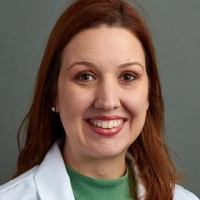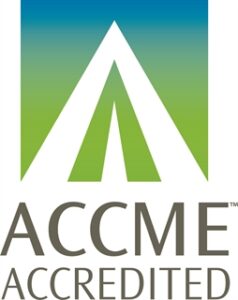
Introduction
Short bowel syndrome (SBS) is a rare, complex and sometimes debilitating chronic condition associated with significant morbidity and mortality, impaired quality of life (QoL) and substantial economic burden.1,2
SBS is most commonly acquired, although newborns may present with congenital short bowel.3 Acquired SBS is frequently associated with extensive and/or multiple surgical resections to treat intestinal diseases such as inflammatory bowel disease (IBD), injury/trauma, or birth defects.3,4 In the US, fewer than 50,000 people have SBS.5
Despite improvements in awareness and management of SBS, there remain several unmet needs.2 Comprehensive management requires an understanding of gastrointestinal (GI) anatomy and physiology, a dedicated multidisciplinary team, and management of nutrition/fluids, medications, and comorbidities.1 Patients often struggle to maintain nutrition and hydration status. Using a combination of diet and pharmacotherapies, partial or full enteral autonomy may be achievable over time through intestinal adaptation.6 In selected patients, augmentation of the absorptive capacity of the existing small bowel may be achieved with glucagon-like peptide 2 (GLP-2) analog therapy, leading to significantly improved QoL.6
Program Section
Faculty

John K. DiBaise, MD:
Professor of Medicine and Consultant, Division of Gastroenterology and Hepatology, Mayo Clinic, Phoenix, AZ.

Stephanie Oliveira, MD, CNSC:
Associate Medical Director, Intestinal Rehabilitation Program, and Assistant Professor at UC Department of Pediatrics, Cincinnati Children’s, Cincinnati, OH.

Carol Rees Parrish, MS, RDN (Moderator):
GI Nutrition Support Specialist,UVA Health (retired), Charlottesville, VA.
Educational needs and learning objectives
The goals of this project are to provide education for HCPs working in Gastroenterology, Pediatrics, Internal Medicine, Surgery, and Primary Care, who are involved in the care of adult and pediatric patients with SBS. The primary objectives of this educational activity are to:
- Improve HCP awareness of SBS and overall care of patients with SBS across different settings and age groups.
- Improve HCP knowledge of current diagnosis and treatment guidelines and recommendations regarding the management of SBS in adult and pediatric patients.
- Improve HCP knowledge of the efficacy and safety data of symptomatic and disease-specific pharmacotherapies, particularly glucagon-like peptide-2 (GLP-2) analogues.
- Facilitate HCP access to relevant, culturally sensitive educational materials that are appropriate for a patient and/or caregiverʼs needs.
Learning objectives
After completing this educational activity, learners should be able to:
- Review current definitions of SBS and IF, and list key physiological changes/needs during different phases of intestinal adaptation to identify the patient’s age-appropriate treatment goals (e.g., growth, reduce PN volume, time off/eliminate need for PN).
- List common pitfalls in the management of chronic SBS-IF, including identifying the SBS-IF patient, challenges in hydration, monitoring for micronutrient deficiencies, and identifying patients on chronic PN for whom it may be possible to reduce or eliminate PN needs.
- Using current guidelines and recommendations, provide an overview of SBS management across the age span from infancy to adulthood, inclusive of different nutritional/hydration, pharmacological, and surgical therapies, integrating management strategies that promote intestinal absorption (e.g., teduglutide).
- Summarize key efficacy and safety data pertaining to drugs specifically approved for use in SBS and apply this information to treatment decision-making, aiming to maximize quality of life and achieve enteral autonomy where possible.
Target Audience
This activity is intended for HCPs involved in the care of people with SBS practicing in the United States: Gastroenterologists, Pediatricians, Pediatric Gastroenterologists, Internal Medicine Specialists, Surgeons (including Colorectal Surgeons), Primary Care Physicians, Dietitians, Advanced Practice Providers (Nurse Practitioners and Physician Assistants), Nurses, Pharmacists, Psychologists and Social Workers
Enduring Materials CE Activity
Release Date: August 26, 2024
Expiration Date: November 26, 2025
Continuing Education Information
This continuing education activity is provided by AffinityCE and Skymedcare LLC. This activity provides continuing education credit for physicians, physician assistants, nurse practitioners, nurses, and pharmacists. A statement of participation is available for other attendees.
Disclosures
Faculty disclosures
Dr. Stephanie Oliveira has disclosed the following financial relationships:
- Consultant: Takeda
Dr. John DiBaise has disclosed the following financial relationships:
- Consultant and Advisory Board: Takeda
- Principal investigator (Clinical Trial): Zealand Pharmaceuticals
- Clinical Trial: North Sea Therapeutics
Carol Rees Parrish, MS, RDN has disclosed the following financial relationships:
- Consultant: Takeda
AffinityCE staff, Skymedcare staff, planners, and reviewers have no relevant financial relationships to disclose. All faculty disclosures are listed below, available on the program website, and will be stated prior to the start of each presentation.
Mitigation of Relevant Financial Relationships
AffinityCE adheres to the ACCME’s Standards for Integrity and Independence in Accredited Continuing Education. Any individuals in a position to control the content of a CME activity, including faculty, planners, reviewers, or others, are required to disclose all relevant financial relationships with ineligible entities (commercial interests). All relevant financial relationships reported have been mitigated prior to the commencement of the activity through peer review of content by non-conflicted reviewers.
Physicians
 | This activity has been planned and implemented in accordance with the accreditation requirements and policies of the Accreditation Council for Continuing Medical Education (ACCME) through the joint providership of AffinityCE and Skymedcare. AffinityCE is accredited by the ACCME to provide continuing medical education for physicians. |
AffinityCE designates this enduring materials activity for a maximum of 2 AMA PRA Category 1 Credit™. Physicians should claim only the credit commensurate with the extent of their participation in the activity.
Physician Assistants
 | This activity has been planned and implemented in accordance with the accreditation requirements and policies of the Accreditation Council for Continuing Medical Education (ACCME) through the joint providership of AffinityCE and SEI-Healthcare. AffinityCE is accredited by the ACCME to provide continuing medical education for physicians. |
AffinityCE designates this enduring materials activity for a maximum of 2 AMA PRA Category 1 Credit™. Physician Assistants should claim only the credit commensurate with the extent of their participation in the activity.
Nurse Practitioners
 | This activity has been planned and implemented in accordance with the accreditation requirements and policies of the Accreditation Council for Continuing Medical Education (ACCME) through the joint providership of AffinityCE and Skymedcare. AffinityCE is accredited by the ACCME to provide continuing medical education for physicians. |
AffinityCE designates this enduring materials activity for a maximum of 2 AMA PRA Category 1 Credit™. Nurse Practitioners should claim only the credit commensurate with the extent of their participation in the activity.
Nurses
 | Continuing Nursing Education is provided for this activity through the joint providership of AffinityCE and Skymedcare. AffinityCE is accredited as a provider of nursing continuing professional development by the American Nurses Credentialing Center’s Commission on Accreditation (ANCC). This activity provides 1.0 contact hour of continuing nursing education credit. |
Pharmacists
 | AffinityCE is accredited by the Accreditation Council for Pharmacy Education as a provider of continuing pharmacy education (CPE). This knowledge-based CPE activity will provide 1.0 contact hour for participants. There is no cost to participate. Participant CE records will be electronically communicated to CPE Monitor. UAN: 0829-9999-24-161-H01-P |
Other Professionals
All other health care professionals completing this continuing education activity will be issued a statement of participation indicating the number of hours of continuing education credit. This may be used for professional education CE credit. Please consult your accrediting organization or licensing board for their acceptance of this CE activity.
Commercial Support
Educational Support for this activity was provided by an independent medical educational grant from Takeda.
Participation Costs
There is no cost to participate in this CE activity.
CME Inquiries
For all CME policy-related inquiries, please contact us at [email protected]
How to Earn CE Credit
Physicians, Physician Assistants, Nurse Practitioners, Nurses and other health professionals
1.Go to the following web site:https://my-ime.com/
2.Register or enter your profile ID.
3.Complete the activity. Your CE records will be electronically sent to and maintained on your Learner dashboard.
Pharmacists
1. Go to the following website (click here)
2. Login and enter your eProfile ID.
3. Your Pharmacy CE records will be electronically communicated to CPE Monitor.
1) Parrish CR, et al. Gastroenterol Hepatol (N Y). 2017;13(10):600–608.
2) DiBaise JK. Nutr Clin Pract. 2023;38(Suppl 1):S4–S8.
3) National Organization for Rare Diseases – Short bowel syndrome. www.rarediseases.org/rare-diseases/short-bowel-syndrome. Accessed April 6, 2022.
4) Short bowel syndrome. Treasure Island (FL): StatPearls Publishing. www.ncbi.nlm.nih.gov/books/NBK536935. Updated July 26, 2022. Accessed April 6, 2023.
5) Genetic and Rare Diseases Information Center – Short bowel syndrome. www.rarediseases.info.nih.gov/diseases/1502/short-bowel-syndrome. Accessed April 6, 2023.
6) Copland A, et al. Pract Gastroenterol. 2017;September 2017:41–52.
Categories: Dietitians, Internal Medicine, Nurse Practitioners, Pediatrics, Physician Assistants, Primary Care / Family Medicine, Psychologists, Social Workers, Surgery

